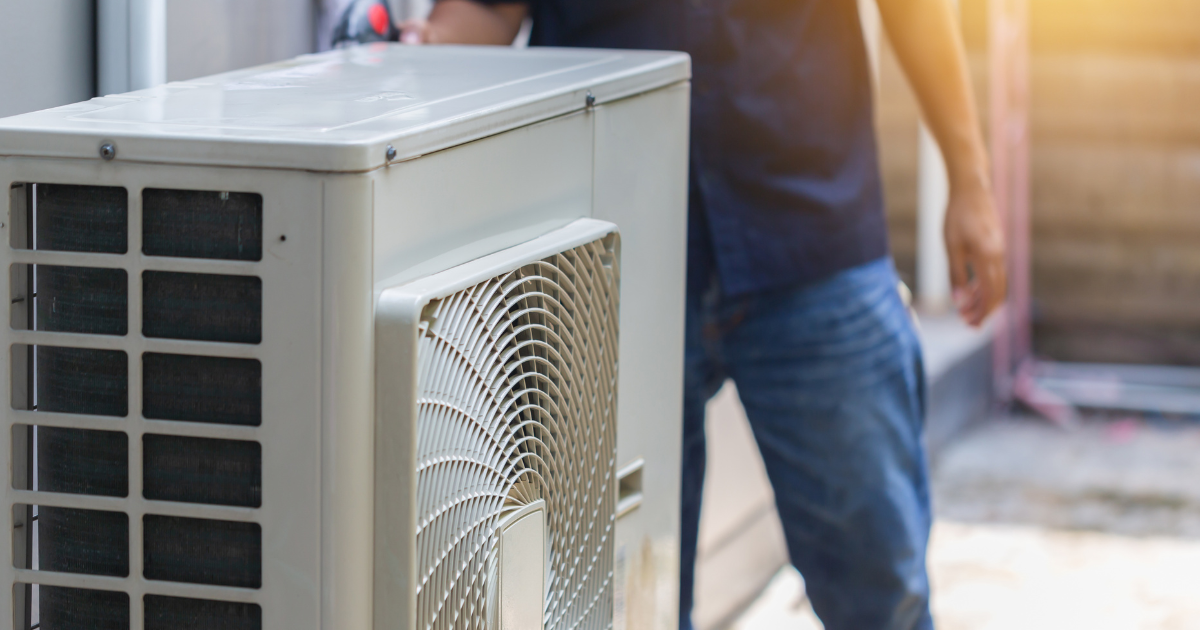The Importance of Refrigerant Inspections & Their Impact on Cooling Efficiency
Maintaining the efficiency of your air conditioning system goes beyond just cleaning filters and scheduling regular service checks; it deeply involves inspecting and managing refrigerant levels.
These inspections are crucial for ensuring that cooling systems operate at their peak, providing comfortable temperatures while minimizing energy consumption. Not only do they impact performance and energy savings, but they also play a significant role in environmental preservation by preventing refrigerants with high global warming potential from leaking into the atmosphere.
Thoroughly checking the refrigerant requires a blend of expertise, precision tools, and an understanding of your system’s specific needs.
Understanding Refrigerant Inspections for Cooling Systems
Refrigerant inspections, a critical component of maintaining air conditioning systems, involve a comprehensive examination of the refrigerant levels and the equipment’s ability to manage and recirculate this vital substance.
Regular checks promise numerous benefits, including elongated equipment lifespan and reduced energy consumption. Identifying signs of refrigerant issues early can avert more significant complications down the line, ensuring that your cooling system performs optimally even during the peak of summer heat.
What Are Refrigerant Inspections?
Refrigerant inspections dive deep into the workings of air conditioning and refrigeration systems to ensure the fluid—vital for heat transfer—is at the correct concentration and pressure. These evaluations scrutinize the entire circuit, from compressor to evaporator, checking for leaks, blockages, and efficiency in refrigerant use.
By closely monitoring and adjusting the levels of substances like hydrofluorocarbon or chlorodifluoromethane, technicians can drastically reduce the global warming potential of operating equipment. Such precise calibration and leak detection practices are paramount in maintaining not only the cooling capacity but also in safeguarding the environment and complying with regulations like the Clean Air Act.
Key Benefits of Regular Inspections
Regular refrigerant inspections offer a pathway to significantly boost the efficiency of cooling systems. Through meticulous assessment, technicians can ensure that equipment operates within optimal parameters, directly contributing to energy savings and reduced operational costs. This preventive approach not only keeps systems running smoothly but also extends the lifespan of components such as compressors, condensers, and evaporators by minimizing wear and tear.
Consistent check-ups play a pivotal role in environmental stewardship by minimizing the leak of refrigerants with high global warming potential. By catching leaks early and ensuring proper refrigerant reclamation, businesses, and homeowners can take active steps toward reducing their carbon footprint. This proactive management aligns with regulations and demonstrates a commitment to preserving our climate for future generations.
Identifying Signs of Refrigerant Issues
Spotting early signs of refrigerant issues can be the linchpin for maintaining the operational integrity of cooling systems. A notable decrease in cooling capacity, where the air conditioning system struggles to maintain the desired temperature, often signals a lack of refrigerant levels or a malfunction within the system.
Another indication of refrigerant trouble is the presence of ice buildup on the evaporator coil or refrigerant lines. This symptom suggests a leakage or blockage, impeding the refrigerant’s flow and hindering efficient heat absorption from the indoor air. Recognizing these signs promptly can sidestep more severe damage and ensure continuous efficient performance of the cooling system.
The Role of Refrigerant in Cooling Systems
In cooling systems, refrigerant is the lifeblood that absorbs heat from the indoor environment and expels it outdoors, enabling the air conditioning units to cool a space effectively. This continuous cycle of evaporation and condensation of the refrigerant within the coils of the system is what maintains a stable and comfortable indoor temperature, responding dynamically to the thermostat’s commands.
A properly functioning cooling system relies on the correct type and amount of refrigerant circulating through its circuit. Without the right refrigerant levels, the system’s ability to absorb and release heat efficiently is compromised, leading to increased energy consumption and reduced cooling capacity. Regular refrigerant inspections ensure that this critical balance is maintained, optimizing the system’s performance and energy efficiency.
Consequences of Low Refrigerant Levels
When the levels of refrigerant fall below optimal, air conditioning systems struggle to maintain the desired temperature, leading to inefficiency and discomfort. This imbalance causes the system to work harder, often resulting in premature wear and tear on vital components like the compressor, which can escalate into costly repairs or the need for replacement sooner than expected.
Additionally, low refrigerant levels compromise the unit’s energy efficiency, significantly elevating electricity usage and expenses. This scenario not only affects the financial overhead for businesses and homeowners but also exerts unnecessary stress on the energy grid, amplifying the system’s environmental footprint.
How to Choose a Professional for Refrigerant Inspections
Selecting a proficient professional for refrigerant inspections is pivotal for ensuring the long-term efficiency and reliability of your cooling systems.
It’s imperative to focus on three crucial aspects: the qualifications and certifications necessary to undertake such specialized tasks, understanding the comprehensive scope of services the professional offers, and gauging their expertise through feedback and reviews from previous clients.
This strategic approach aids in aligning with experts who not only meet but potentially exceed expectations, guaranteeing a profound impact on the performance and sustainability of your air conditioning systems.
We at Bob Jenson are willing and qualified to assist you with your refrigerant inspections. Lean on the professionals when it comes to keeping your home comfortable and cool.
Maximize Efficiency and Sustainability with Bob Jenson
Refrigerant inspections play a crucial role in maintaining the efficiency and sustainability of cooling systems. By conducting regular checks, trained technicians at Bob Jenson ensure that the systems operate within optimal parameters, leading to enhanced energy savings and a reduced environmental footprint.
These inspections identify and rectify issues like leaks or inadequate refrigerant levels early, preventing more significant problems that could lead to inefficient cooling and increased operational costs.
Prioritizing regular refrigerant inspections not only maximizes cooling system performance but also contributes significantly to environmental conservation and energy efficiency. Call our experts today!




